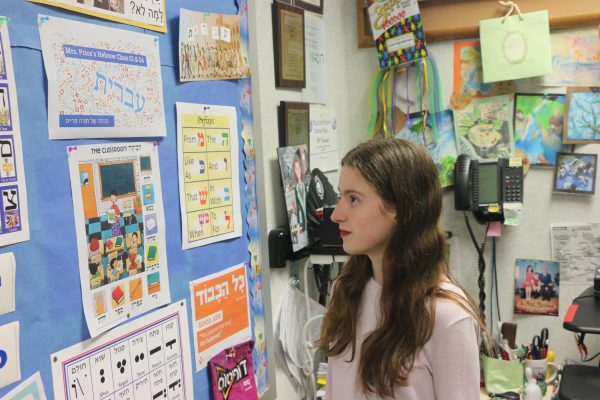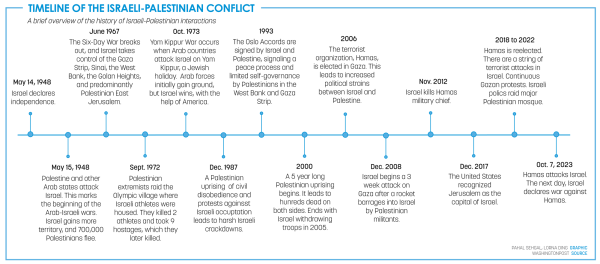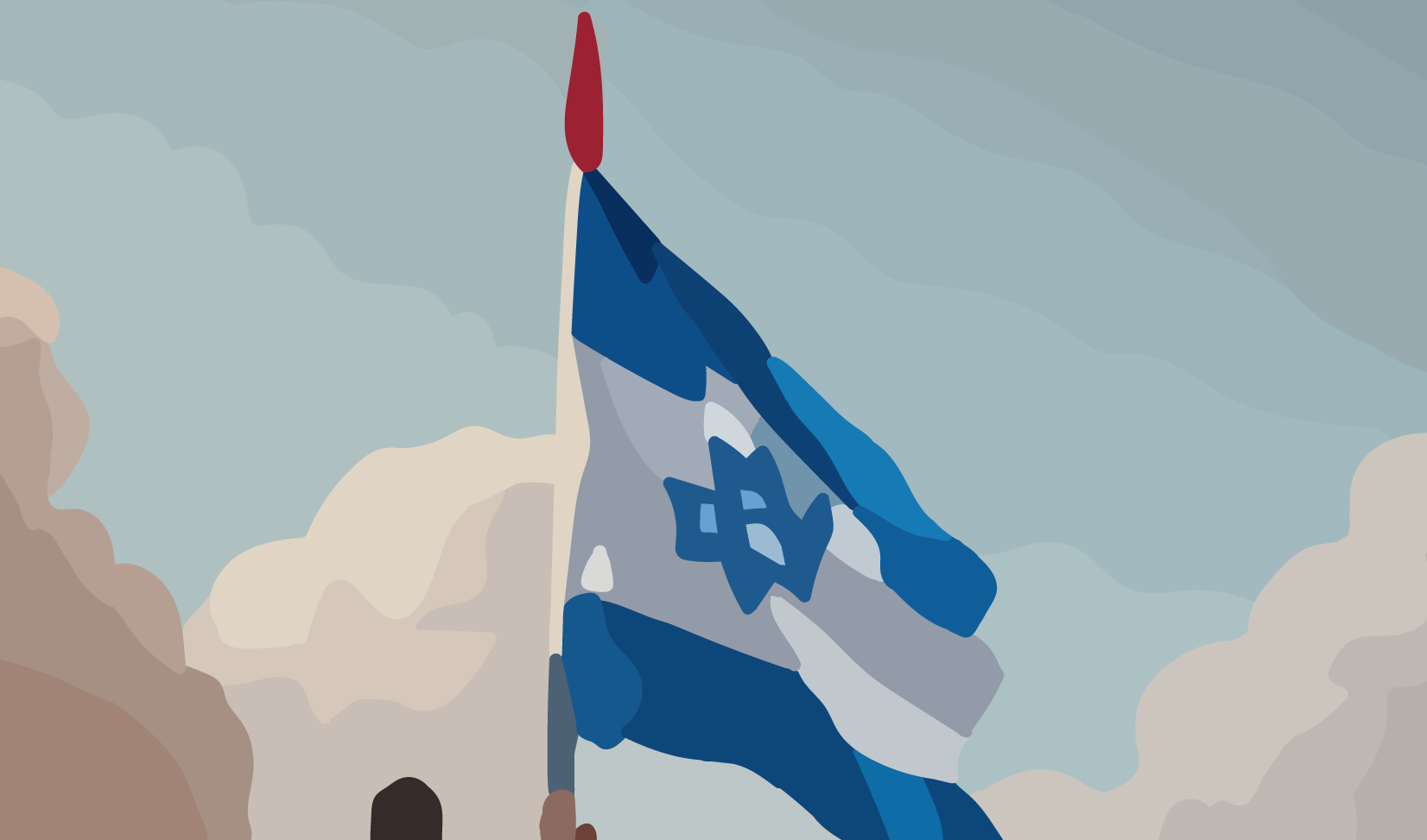According to reports from the Jewish Agency of Israel, approximately 8.5 million Jews live outside of Israel, and 7.6 million of those Jews live in America. The recent conflict between Israel and Palestine in Gaza has brought that identity to the forefront for students like senior Marissa Halle. Her thoughts on the conflict are mixed.
“It’s interesting because my position (on the conflict) has changed a bit from the start. I am Jewish and I identify with being Jewish, and I love being Jewish,” Halle said. “But, to some degree, I obviously see a multitude, a plethora of people, both Jewish and Muslim, being murdered, and it really does sadden me.
“I would still say I have a deep love for Israel,” she added. “I do support Israel, and I want Israel to protect itself. But, you know, ‘To what extent is it OK?’ is the overarching question. I don’t know.”
Grappling with identity and stereotypes

As a Jewish person in America, Halle said she has struggled with her identity in fear of antisemitism.
“I have this necklace…and a lot of Jewish and Israeli people wear them when something tragic happens. It’s basically like there’s something protecting you, and for me to wear this Jewish star necklace every time, I feel in some ways protection,” she said. “For a while, I went through this subconscious ideology of, ‘I shouldn’t wear my Star of David necklace because what if someone picks on me? What if someone bullies me or harasses me?’”
Junior Benjamin “Ben” Auslander said he agreed with Halle. Receiving hateful and antisemitic remarks, he said, is terrifying.
He said, “When you have people who are trying to be extreme (and) mismanage what my voice is saying, then certain things can be interpreted as hateful, and that’s scary to me because I just want peace.”
Günther Jikeli, associate professor for Jewish Studies and the study of antisemitism at Indiana University, said the Israeli-Palestinian conflict highlights the recent rise in antisemitism. In fact, the Anti-Defamation League recorded 2,031 antisemitic incidents between Oct. 7 and Dec. 7, marking a 337% increase from the same months in 2022.
“We have gone from disinformation to a phase of mobilization against Jews. It is unprecedented in my lifetime what I see on social media today and also on the streets,” Jikeli said via email. “What can people do? They can talk to a Jewish person. They can try to understand that Jews are not evil, that Israel is not evil, and that good people and bad people are in every community. They can try to understand the history of antisemitism—without victim blaming.”
To add on, Auslander said he has heard hurtful stereotypes about both sides.
“(A stereotype) I’ve been seeing is that Israelis are Nazis or that they’re kind of becoming people that they hate. That’s blatantly not true and dangerous because it demonizes an entire nation of people,” he said. “Another one that I’ve seen is that Muslims (and) Palestinians are barbaric and dangerous. That’s not true.”
Halle said many people have questioned her support for Israel. She said her support for Israel comes from her family and culture.
“(People will be) like, ‘Why are you supporting a country that’s brutally murdering others and using all these war tactics?’ They’re just traumatizing, and we see these videos of innocent Palestinian children being murdered. And it’s horrible. It’s horrible, it’s horrible, it’s horrible,” Halle said. “But at the same time, I feel like my grandparents, their love for Israel, my great-grandparents, their love for Israel, it really has inspired me overall to continue to have this ideology (of) strength within the Jewish people.
“We’re a very, very small minority,” she added. “It’s hard when you only have this one little, little sliver of land for your whole religion—that little sliver of land where you’ve been told your whole life if anything bad happens this is where you go. For that little sliver of land to be destroyed, it really is heart-wrenching.”
Social media on the conflict
Although Auslander said he supports Israel, he said he makes sure to consider both sides of the conflict when reposting on social media. Sharing his voice on social media, he said, is important.
He said, “I try to repost things that are not hateful, obviously, but are more nuanced and show both sides to the conflict and show that I want peace.”
At the same time, Halle said she felt scared of posting about her support for Israel on social media at first.
She said, “Most of my friends are anti-Israel, pro-Palestinian, and I was like, ‘Oh, no, they might judge me for posting about how much I love Israel, how much I unite with Israel, and how much I empathize with Israel. But then, I was like, ‘This is kind of who I am and this is how I’ve been raised.’”
However, Jikeli said social media is often misused, leading to misinformation and hate speech.
He said, “(We’ve found) that there is a lot of misinformation on social media, particularly on smaller platforms and open calls for violence against Jews. So, no, social media is not a good source of information (on) complex issues. It can only help to understand how people talk about certain issues.”
Auslander said he has blocked accounts that have posted antisemitic content on Instagram.
He said, “There are some people who post incredibly hateful, demonizing tropes about the Israelis and the Jewish people that have been disproven multiple times (and) that I deem blatantly hateful and dangerous. If I see something like that, I instantly block the person.”
To address antisemitic content and hate speech, Jikeli said people can create their own posts.
He said, “If you want to combat false information and hatred on social media, it’s best not to engage but to create your own posts. Otherwise, flag biased posts.”

Opposing perspectives
For Auslander, he said he understands and empathizes with the pro-Palestinian perspective.
“(On social media), if it’s someone that says something (opposing my view) that’s more fair, more nuanced, and a proper argument, then I respect it. (This is) a war and there are no winners in a war.”
In fact, Halle said her friendships with people who are pro-Palestinian have strengthened.
She said, “We can still hope for the best and pray for peace and love and protection and resilience and strength even though our views are very different. I think if anything it shows how much my friendships have grown and how I’m able to talk about really, really personal things in my life with my friends.”
Halle said she encourages people to respect different values and perspectives.
“I did have two friends who participated in a pro-Palestinian peaceful walk, and I didn’t really say anything,” she said. “I obviously wasn’t loving the fact that they were going out and (saying), ‘Free Palestine, Free Palestine,’ but it’s not like they were saying, ‘F Israel’ and stuff like that. I’m able to accept it if it’s in a peaceful manner.
“Again, I don’t love America, but I think that’s the beauty within our country,” she added. “You’re allowed to voice your own opinions; you’re allowed to have your own stance.”
Auslander said the school can help promote these discussions on the conflict and educate students.
“If there are programs that are in place to help prevent antisemitism just by educating students, I would love it if CHS could implement some of these policies (and) some of these programs into the general atmosphere,” he said. “I think that educating people more about some of the horrific atrocities that have happened to the Jewish people and the Palestinian people would be incredibly important.”
Finding community and strength
As a Jewish American, Auslander said he mourns for the Jewish lives lost in the conflict.
He said, “There’s an interesting term that I heard a little while ago called Jewish geography, where regardless of where you are, you’re always going to be connected to another Jewish person because of how close-knit the community is. So when one dies or is killed, it’s heartbreaking because that’s your friend’s cousin or your boss’s coworker.”
Ultimately, in light of the ongoing Israeli-Palestinian conflict, Auslander said he hopes for peace and respect.
“I want to have peace. I think that’s the only option going forward,” he said. “Most people on both sides of the conflict just want peace. They just want to live a happy lifestyle. Do not go and demonize a whole nation of people.”
Halle said she has found strength in spirituality, lighting Shabbat candles on Fridays and reciting prayers and texts.
She said, “I just keep telling myself, ‘We’re going to get through this. It’s a really hard time right now.’ But, as Jewish people, we’ve experienced a lot of tragedy, starting from even before the 1500s. I just keep reminding everyone, ‘We’re going to get through this. It’s really hard, but if anything, it’ll make us stronger as people.’”




